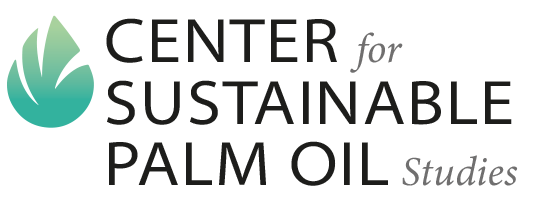
Forest conservation efforts in Southeast Asia offer a model for saving the rainforest in other regions of the globe, such as the Amazon Basin, where deforestation rates have increased in recent years, an opinion editorial published by Yale University’s the Yale School of the Environment argues.
The article highlights the findings of a recent study, published by the non-profit Chain Reaction Research. The study found a drop-in Southeast Asia’s deforestation rates from roughly a million acres per year to less than 250,000 acres per annum over the last few years due to the efforts that have brought attention to the issue. The Chain Reaction Research report argues that improved government monitoring and efforts on the ground can help to tackle deforestation as the improvements in Southeast Asia’s palm oil industry suggest.
The study received attention from a number of environmental NGOs and was even the subject of an op-ed by the CEO of Mighty Earth, a New York-based NGO. The article published by the Yale School of the Environment, is a welcomed change in attitude within the environmental movement towards palm oil and suggests a growing number of people around the world are realizing the global double standards on deforestation.
In the past, the European Union’s policy on palm oil has been to enforce a blanket ban on Southeast Asia rather than to engage with the situation on the ground directly. Such on the ground efforts, including the raising of public awareness, satellite monitoring and supply chain analysis, have proven effective as the article by the Yale School of the Environment argues.
“Such progress is possible in large part because deforestation isn’t necessary to the growth of agriculture: There are more than a billion acres of previously deforested land around the world where it’s possible to expand agriculture without threatening native ecosystems.” says Glenn Hurowitz, the CEO of Mighty Earth.
In the article, Hurowitz points out that Mighty Earth has played a role in this transformation in Southeast Asia’s palm oil sector. This has occurred, through monitoring supply chains and bringing specific issues involving major companies to greater attention within the media and consumers at large. The article notes that during the past years Southeast Asian countries have made progress toward increasing the sustainability of the industry.
Conversely, the EU has not acknowledged the problematic nature of its recent trade deal with the South American trading bloc Mercosur, which includes Brazil, in contract to its hard-line on palm oil. In Brazil, the further industrialization of farming of soybean crops and the production of beef – primarily to feed hungry consumers is fuelling climate change. The two industries which are interlinked due to most of the soy being used as animal feed to maintain the beef production are rapidly destroying Brazil’s rainforests.
In that same article, Yale University hailed developments in Southeast Asian palm oil industry as a potential “blueprint” for South American industries such as soybean farming and cattle ranching. Indeed, beef production is the number one driver of deforestation globally and the continent of South America accounts for 54% of world’s percentage of deforestation. Brazil, followed by Bolivia and Peru account for 70% of this deforestation.
Yet, President of Brazil Jair Bolsonaro has been reluctant to cave to international pressure to halt the destruction of the Amazon. Sadly, the EU has not ought to encourage the development of a regional certification schemes in Latin America to ensure the sustainability standards of forest-risk commodities. Such public pressure has helped to drive interest in certification schemes notably in Southeast Asia, putting palm oil ahead of other forest-risk commodities with its high sustainability standards.
Currently, 78% of the palm imported into the EU arrives under a certification scheme as opposed to just 13% of soy for example. Much of the soy imported into the EU comes from South America’s Amazon Basin. As a result, 20% of soy imports to the EU from Brazil have been linked to deforestation. Roughly the same amount of Brazilian beef exports to the EU have also been linked to deforestation in South America’s largest country. Indeed, while deforestation is dropping in Southeast Asia, the issue continues to unravel in South America.
Hurowitz’s article draws further attention to the EU’s contradictory attitude towards environmental issues in Brazil. Even though deforestation rates in the Amazon continue to grow rapidly, the EU reached a trade agreement with Mercosur in 2019. After 20 years of negotiations, it is surprising the agreement takes place without any efforts to curtail deforestation in Brazil and with the incumbent President Bolsonaro opposing these efforts.
Though admittedly the deal still awaits final ratification, the stance taken by the EU towards deforestation in the Amazon is concerning. The EU-Mercosur agreement leaves a lot to hope for: research shows that cattle ranching in Brazil is the leading driver of deforestation emissions across Latin America, and thus one of the largest contributors to climate change worldwide.
Instead, the EU has taken a hard-line approach to palm oil production in Southeast Asia. Until recently, it has taken little notice of important changes in the region. Significant progress has been made to create more sustainable practices in the palm oil sector in contrast to actions in the Amazon, where deforestation is accelerating.
That said, it is positive for the palm oil industry that top institutions such as Yale University are beginning to recognise that sustainable palm oil is a reality worth supporting, a potential blueprint for other industries to halt deforestation globally.







